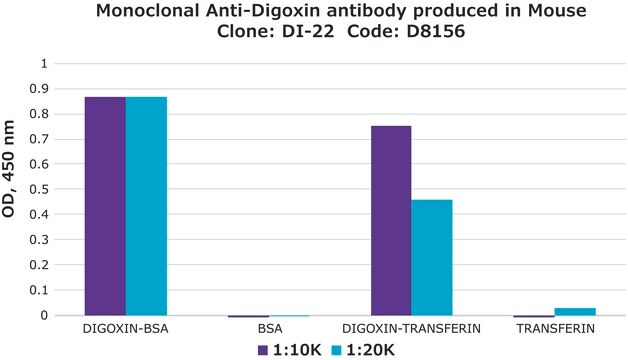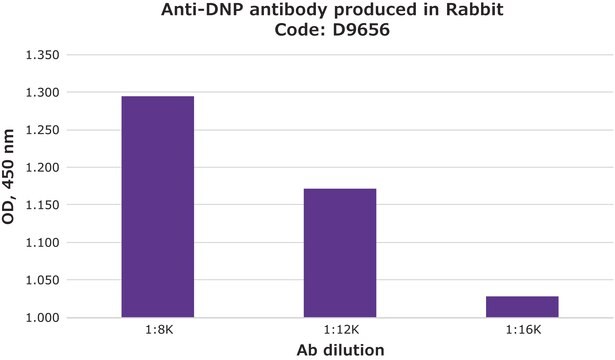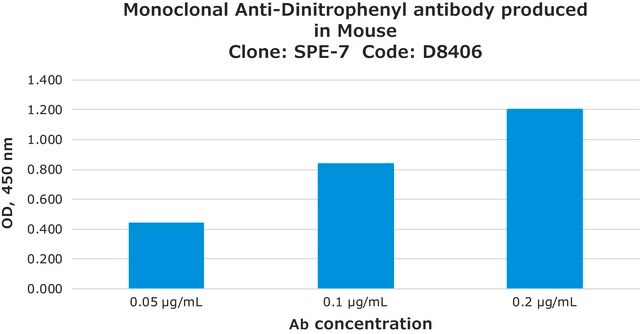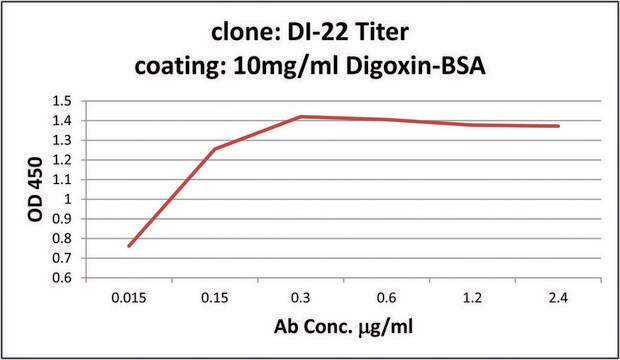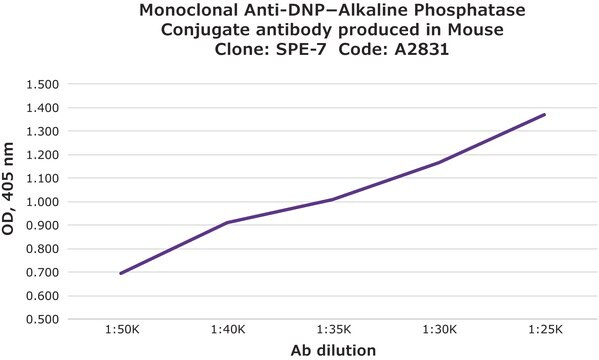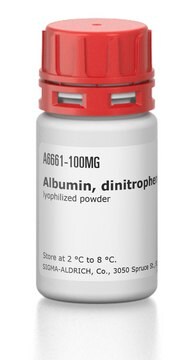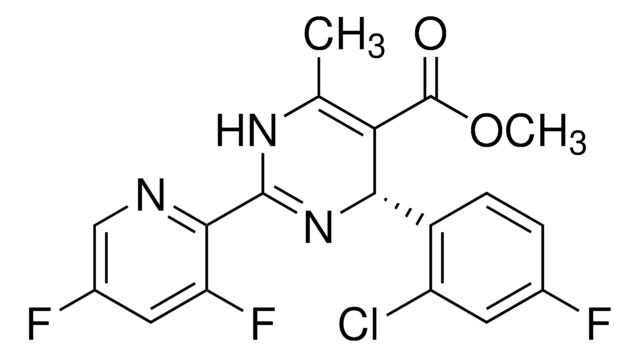D9781
Anti-DNP antibody produced in goat
whole antiserum
Synonym(e):
Anti-Dinitrophenol
About This Item
Empfohlene Produkte
Biologische Quelle
goat
Qualitätsniveau
Konjugat
unconjugated
Antikörperform
whole antiserum
Antikörper-Produkttyp
primary antibodies
Klon
polyclonal
Enthält
15 mM sodium azide
Methode(n)
indirect ELISA: 1:8,000
quantitative precipitin assay: 1.6-2.4 mg/mL
Versandbedingung
dry ice
Lagertemp.
−20°C
Posttranslationale Modifikation Target
unmodified
Allgemeine Beschreibung
Immunogen
Anwendung
Angaben zur Herstellung
Hinweis zur Analyse
Haftungsausschluss
Sie haben nicht das passende Produkt gefunden?
Probieren Sie unser Produkt-Auswahlhilfe. aus.
Lagerklassenschlüssel
10 - Combustible liquids
WGK
nwg
Flammpunkt (°F)
Not applicable
Flammpunkt (°C)
Not applicable
Analysenzertifikate (COA)
Suchen Sie nach Analysenzertifikate (COA), indem Sie die Lot-/Chargennummer des Produkts eingeben. Lot- und Chargennummern sind auf dem Produktetikett hinter den Wörtern ‘Lot’ oder ‘Batch’ (Lot oder Charge) zu finden.
Besitzen Sie dieses Produkt bereits?
In der Dokumentenbibliothek finden Sie die Dokumentation zu den Produkten, die Sie kürzlich erworben haben.
Kunden haben sich ebenfalls angesehen
Unser Team von Wissenschaftlern verfügt über Erfahrung in allen Forschungsbereichen einschließlich Life Science, Materialwissenschaften, chemischer Synthese, Chromatographie, Analytik und vielen mehr..
Setzen Sie sich mit dem technischen Dienst in Verbindung.